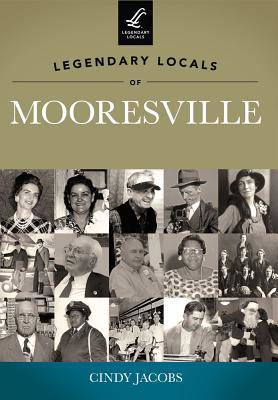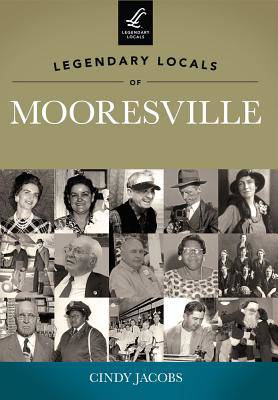
- Afhalen na 1 uur in een winkel met voorraad
- Gratis thuislevering in België vanaf € 30
- Ruim aanbod met 7 miljoen producten
- Afhalen na 1 uur in een winkel met voorraad
- Gratis thuislevering in België vanaf € 30
- Ruim aanbod met 7 miljoen producten
Zoeken
€ 34,95
+ 69 punten
Omschrijving
The rumble of trains carrying people, cotton, and freight to and from Moore's Siding was the song of a vibrant community. People worked to build homes, schools, and churches as early as 1760. They got a town, Mooresville, in the bargain. James Elbert Sherrill, George C. Goodman, and the Turner brothers supported the growing economy. Love of community led Winnie Hooper and Elizabeth Matheson to champion recreation. Shaw Brown saw people in need and worked to establish a Christian mission. Mayor Joe Knox and Rep. Robert Brawley embraced change and led a mill town toward a technological future. Success at home led to success far away for artist Selma Burke, Mooresville Moors pitcher Hoyt Wilhelm, New York Parties author Punky Brawley, and Reynolds Tobacco president S. Clay Williams.
Specificaties
Betrokkenen
- Auteur(s):
- Uitgeverij:
Inhoud
- Aantal bladzijden:
- 128
- Taal:
- Engels
- Reeks:
Eigenschappen
- Productcode (EAN):
- 9781467100038
- Verschijningsdatum:
- 20/02/2012
- Uitvoering:
- Paperback
- Formaat:
- Trade paperback (VS)
- Afmetingen:
- 163 mm x 231 mm
- Gewicht:
- 249 g

Alleen bij Standaard Boekhandel
+ 69 punten op je klantenkaart van Standaard Boekhandel
Beoordelingen
We publiceren alleen reviews die voldoen aan de voorwaarden voor reviews. Bekijk onze voorwaarden voor reviews.








